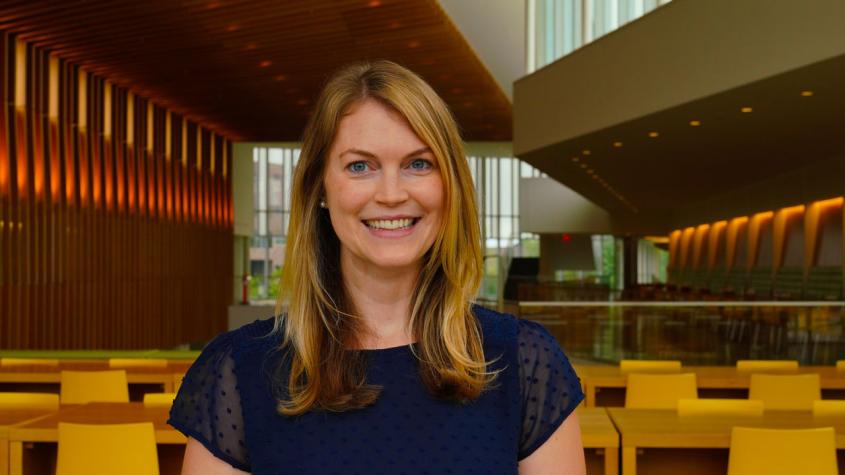New faculty profiles: Dr. Alyssa Chandler
The Cornell University College of Veterinary Medicine (CVM) has recently welcomed many new faculty members to our academic departments, each one bringing a unique set of skills and experience that enriches our college every day. In this Q&A series, you'll get to know their interests, expertise and more.
Alyssa Chandler, D.V.M. ’14, assistant clinical professor in the Section of Small Animal Medicine
Q: What has been your path leading up to Cornell?
A: I completed veterinary school at Cornell, followed by a rotating internship at North Carolina State University. I was fortunate to come back to Cornell for my residency in internal medicine, and then spent a few years in private practice prior to joining the clinical faculty at Cornell.
Q: What drew you to CVM?
A: Cornell has always felt like home to me, and it is where I discovered my love of teaching. The opportunity to participate in training future veterinarians and veterinary specialists is really a dream.
Q: What is your clinical or scientific area of expertise?
A: I am fascinated by all aspects of veterinary medicine, but particularly enjoy infectious and immune-mediated disease and gastrointestinal disease. I am also interested in developing novel teaching strategies to make subject matter more interactive and accessible to students.
Q: What drew you into this area? Any specific experiences, mentors or influences that helped guide you?
A: As a veterinary student and resident, I was fortunate to learn from many brilliant clinician scientists whose devotion to teaching and ability to make complex topics come to life made a lasting impression on me. This foundation has inspired my interest in utilizing simulations, digital models and interactive technology in my own teaching.
Q: What about your clinical work, research or teaching innovations are you most excited for or proud of and why?
A: I was very excited to take on several lectures in the preclinical curriculum this year, and to bring a case-based, real-world approach to the classroom. I am also excited to collaborate with colleagues on research that advances our understanding of animal diseases and expands our treatment modalities.
Q: What’s the best part of being a clinician?
A: Identifying a clinical problem and having the opportunity to be part of a far-reaching solution.
Q: What’s the most challenging part?
A: Balancing work and home life and giving my best to both.
Q: What are the benefits of working at CVM? At Cornell?
A: The supportive and collaborative atmosphere.





